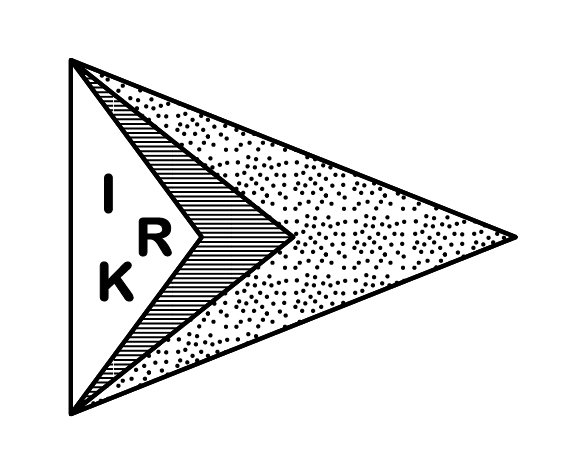The International Canoe Federation is celebrating its centenary as today marks 100 years since the formation of the global governing body for paddle sports.
Today’s anniversary is the start of a year of centenary celebrations coinciding with the Paris Olympics and culminating with the ICF Congress in Antalya, Turkey in November.
A commemorative book will be published later this year, while a series of articles highlighting key moments for the sport over the past 100 years will also be produced for the ICF website.
On January 19, 1924, representatives from the National Federations of Denmark, Germany, Austria and Sweden came together to form an international paddling association.
The two-day meeting was held in Copenhagen, Denmark where the Danish, German, Austrian and Swedish officials agreed to name the body “Internationale Repräsentantenschaft für Kanusport”, abbreviated as “IRK”.
The purpose of the IRK was defined in five bullet points, including “to form a link between canoeing associations of the various counties” and “as far as possible to organize international competitions in paddling and sailing once a year and alternately in the various countries”.

“To promote and foster foreign touring through production of appropriate river guides and through the provision of information about the possibilities of finding accommodation and places of interest” was the third point.
The remaining points were “to introduce on maps internationally recognized symbols for rivers in order to facilitate touring” and “to exchange canoeing information by mutually making available the various national publications on canoeing through the preparation of lectures and speakers, films and photographs, as well as through correspondence”.
Regulations for the classes of racing kayaks, sailing canoes and Canadian canoes were also agreed along with rules for international races.
Franz Reinicke, who led the German Canoe Association, assumed office as the first President of the IRK following a meeting in July 1924.
That year also saw flatwater canoeing, the former name of canoe sprint, feature as a demonstration sport at the 1924 Olympic Games in Paris.
Canoe sprint became a full medal sport at the 1936 Olympics in Berlin before being joined by canoe slalom which made its debut at Munich 1972 and has been a permanent fixture at the Games since Barcelona 1992.
This year’s Olympics in Paris will also see the addition of kayak cross to the programme.
Paracanoe will make its third successive appearance at the Paralympics this year after featuring at both Rio 2016 and Tokyo 2020.
The ICF replaced the IRK as the name of the organization in 1946.
Since then, the ICF has grown enormously and now governs 10 disciplines – canoe sprint, canoe slalom, paracanoe, canoe marathon, canoe polo, wildwater canoeing, canoe freestyle, canoe ocean racing, dragon boat and Stand Up Paddling.
The ICF has also increased its membership to 171 National Federations.
“Today, I am excited to announce the commencement of a year-long celebration marking the ICF's 100th anniversary," said ICF President Thomas Konietzko.
“Starting on January 19, our celebration will coincide with the Paris Olympics, and throughout the year, we will host a series of activities both on and off the water.
“I invite every one of you—paddlers, enthusiasts, and supporters—to join us in commemorating this milestone.
“The celebration will reach its peak at the ICF Congress in Antalya this November, where we will host a centenary celebration evening.
“Representatives from all National Federations, partners, and esteemed guests from the International Olympic Committee and International Federations will join us to mark this historic occasion.
“Today is not just a reflection on our past but a commitment to our future.
“The ICF is ambitious, striving to achieve even greater heights.
“We aim to make our sport more enjoyable to everyone, support paddlers across the globe, and elevate the world of canoeing sports.
“In the spirit of the ICF motto, let us always move forward!
“Together, we will make the next 100 years even more remarkable.”
Related links

